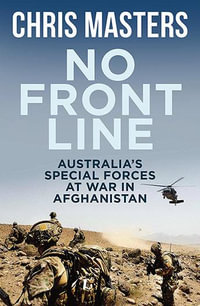In early 1941 Australian soldiers stormed Italy’s stronghold on the Libyan coast and took control of the port city of Tobruk. Heavily outnumbered, yet resourceful and defiant, the Australians then defended the garrison against sustained attack by German forces. For five months the ‘Rats of Tobruk’ held on, dealing a major blow to the Axis powers’ North African campaign. Tobruk 1941 is the pioneering ABC reporter Chester Wilmot’s on-the-ground account of the siege, a landmark work of war writing.
This edition comes with a new introduction by the historian Peter Cochrane.
About the Author
Chester Wilmot was born in 1911, and studied history and law at the University of Melbourne. After working briefly as a legal clerk, he became a war correspondent for the ABC and later the BBC, working in the Middle East, North Africa, Europe and New Guinea. A dynamic, innovative and sometimes controversial journalist, Wilmot reported from the frontlines of many key battles. He later settled in England, where he became a broadcaster and military historian. His second book, The Struggle for Europe (1952), was a bestseller and is still considered one of the finest books about World War II. Wilmot died in a plane crash in 1954.
Industry Reviews
`Riveting...[Tobruk 1941] brings to vivid life the battle.' * Age *
`[Chester Wilmot is] one of the greats of Australian journalism.' -- Peter FitzSimons
`Wilmot effectively invented the modern method of writing contemporary military history.' -- John Keegan
`It's not true that time preserves the best books. It's often neglectful...Wilmot was with the Australian and British troops at Tobruk, during its capture and after. He takes you onto the battlefield: describing sappers dismantling land mines with sticks in advance of the troops. Australians capturing surprised Italians at mealtime then finishing their meals for them, and the courage it takes to stand your ground and shoot Stukas from the sky to keep the life-line harbour going. Informed, incisive and vivid.' * Sydney Morning Herald *
`What matters most is that a magisterial book by a great and intrepid journalist is once again accorded the attention it so richly deserves.' * Quadrant *

























